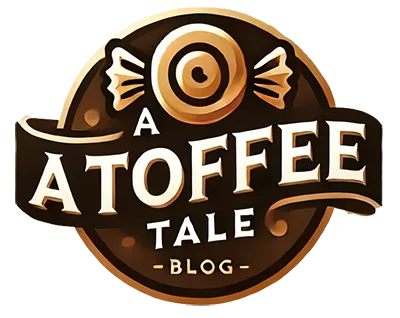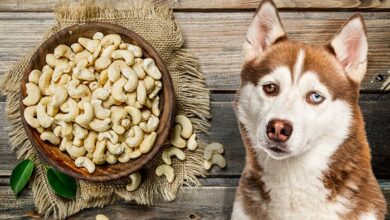Can Dogs Eat Flan? What Every Dog Owner Needs to Know-2024

Can Dogs Eat Flan? Flan is a popular dessert that many people love for its creamy texture and sweet taste. It typically includes core ingredients like milk, eggs, sugar, and vanilla. Some variations may add flavors like caramel, cinnamon, or chocolate, making it even more tempting!
However, not all flans are created equal. While homemade flan uses fresh ingredients, store-bought versions can contain preservatives or artificial flavors that might not be safe for dogs. Before you share a bite of this tasty treat with your furry friend, let’s explore the ingredients in flan and consider whether it’s a good choice for your pup. So,let’s explore that- can dogs eat Flan?
Is Flan Safe for Dogs? Analyzing the Risks
Can Dogs Eat Flan? When it comes to sharing food with our beloved pets, it’s essential to know what’s safe and what’s not. Many dog owners might wonder, “Is flan safe for dogs?” While this creamy dessert may look delicious and tempting, it poses several risks that make it unsuitable for our furry friends. Let’s dive into the key concerns surrounding flan and its ingredients to help you understand why it’s best to keep this treat away from dogs.
High Sugar Content-Can Dogs Eat Flan?
Flan is known for its sweet flavor, but that sweetness comes from high sugar content. For dogs, excessive sugar intake can lead to serious health issues, including:
- Obesity: Just like in humans, too much sugar can cause weight gain in dogs, leading to obesity.
- Diabetes: Regular consumption of high-sugar foods can increase the risk of developing diabetes in dogs, which can have long-term health implications.
Dairy Concerns
Flan contains milk and cream, which can pose a problem for many dogs due to lactose intolerance. Here’s how it affects them:
- Digestive Issues: Dogs who are lactose intolerant may experience symptoms like bloating, gas, diarrhea, or vomiting after consuming dairy products.
- Uncomfortable Symptoms: Even if your dog isn’t lactose intolerant, too much dairy can still upset their stomach.
High Fat Levels
Flan also has a significant fat content, which can be harmful to dogs, especially in larger amounts. This can lead to:
- Pancreatitis: The high fat in flan can trigger inflammation of the pancreas, a painful condition that can require veterinary treatment.
- Digestive Upset: Consuming fatty foods can also cause general stomach upset and discomfort in dogs.
Toxic Ingredients
Can Dogs Eat Flan? Finally, some commercially prepared flans might include ingredients that are toxic to dogs, making them even riskier. Look out for:
- Xylitol: This artificial sweetener is extremely toxic to dogs and can lead to rapid insulin release, causing hypoglycemia.
- Chocolate: If the flan contains chocolate, it poses a severe risk, as chocolate is toxic to dogs and can lead to serious health problems.
Can Dogs Eat Flan? While flan might be a delightful dessert for humans, it’s important to remember that it carries significant risks for dogs. High sugar, dairy, fat, and potential toxic ingredients make it unsafe for our pets. If you want to treat your dog, there are plenty of safe and healthy alternatives that can satisfy their cravings without compromising their health!
What to Do if Your Dog Accidentally Eats Flan
Can Dogs Eat Flan? If you’ve ever found yourself in a situation where your dog manages to sneak a bite of flan, you may wonder, “What should I do now?” First and foremost, it’s crucial to remain calm. While flan is not the best treat for dogs, understanding the right steps to take can help ensure your furry friend’s safety. Let’s break down what you need to do if your dog accidentally eats flan.
Stay Calm
Your immediate reaction matters. Here’s why staying calm is important:
- Small Amounts: If your dog only had a tiny taste, it might not cause serious harm. Dogs often handle a small amount of sugary or creamy treats without immediate issues.
- Monitor Your Pet: After ingestion, keep an eye on your dog for any unusual behavior or symptoms.
Watch for Symptoms
Even if you think everything is fine, it’s essential to monitor your dog closely for signs of distress. Look out for:
- Vomiting or Diarrhea: These can indicate an upset stomach, which can occur due to dairy or sugar in flan.
- Lethargy: If your dog seems unusually tired or sluggish, it could be a sign they’re not feeling well.
- Signs of Stomach Discomfort: Watch for any signs your dog might be in pain, like whining, pacing, or excessive drooling.
Contact Your Vet
If your dog exhibits any concerning symptoms, or if they consumed a large amount of flan, don’t hesitate to reach out to your veterinarian. Here’s what to keep in mind:
- Persistent Symptoms: If vomiting or diarrhea continues, your vet can provide guidance on the next steps and any necessary treatments.
- Large Portions: If your dog ate a significant amount of flan, it’s better to be safe and consult your vet to assess potential risks.
Can Dogs Eat Flan? If your dog accidentally eats flan, staying calm and monitoring their behavior is key. Keep an eye out for any symptoms of distress and don’t hesitate to contact your vet for advice. Being proactive can help ensure your furry friend remains happy and healthy!
Healthier Alternatives to Flan for Dogs
Can Dogs Eat Flan? When it comes to satisfying your dog’s sweet tooth, you might wonder if flan is a good choice. However, considering the potential health risks, it’s wise to explore healthier alternatives. Let’s look at some dog-friendly options that can provide a delicious treat without the drawbacks of flan.
Plain Greek Yogurt
Plain Greek yogurt is a fantastic alternative for dogs craving something creamy. Here’s why it’s a good choice:
- Lower Lactose Levels: Compared to regular dairy products, plain Greek yogurt has less lactose, making it easier for many dogs to digest.
- Probiotics: This yogurt contains beneficial probiotics that can support your dog’s digestive health.
- Protein Boost: Greek yogurt is higher in protein than standard yogurt, which can help contribute to your dog’s nutritional needs.
Pumpkin Puree
Another excellent alternative is pumpkin puree, which is not only safe but also nutritious for dogs. Here’s what makes pumpkin a great option:
- High in Fiber: Pumpkin is rich in fiber, which can aid digestion and keep your dog’s gut healthy.
- Low in Sugar: Naturally low in sugar, pumpkin provides a sweet flavor without the health risks associated with sugary treats.
- Versatile: You can mix pumpkin puree with yogurt or serve it on its own for a tasty snack.
Unsweetened Applesauce
Unsweetened applesauce is another delicious and healthy treat to consider for your dog. Here’s what you need to know:
- Mild Sweetness: Applesauce offers a gentle sweetness that many dogs enjoy without added sugars.
- Vitamins and Nutrients: It provides vitamins A and C, which can help support your dog’s overall health.
- Hydrating: The moisture content in applesauce can be a refreshing option, especially during warmer months.
Can Dogs Eat Flan? By offering these healthier alternatives to flan, you can treat your dog to something special without compromising their health. Remember, always introduce new foods gradually and watch for any signs of allergies or sensitivities. Your dog will love the variety, and you’ll have peace of mind knowing you’re making a safe choice!
Signs of Sugar Overload or Lactose Intolerance in Dogs
Can Dogs Eat Flan? If you’re considering sharing flan with your furry friend, it’s essential to be aware of the signs of sugar overload or lactose intolerance in dogs. While the creamy dessert might seem tempting, your dog’s health is the top priority. Let’s explore the symptoms that may indicate your dog is having trouble digesting flan or experiencing the effects of too much sugar.
Digestive Upset
One of the first indicators that your dog might be having a negative reaction to flan is digestive upset. Here are some symptoms to watch for:
- Vomiting: Your dog may vomit shortly after consuming flan, indicating their stomach is not handling it well.
- Bloating: If your dog’s belly looks swollen or feels hard, this could be a sign of discomfort due to dairy or sugar.
- Diarrhea or Flatulence: Loose stools or increased gas may result from lactose intolerance, especially if flan is rich in dairy.
Behavioral Changes
Along with digestive issues, pay attention to any changes in your dog’s behavior after eating flan. This can include:
- Excessive Drooling: If your dog is drooling more than usual, it might be their body’s response to the dessert.
- Whining or Restlessness: Your dog might seem uncomfortable, whining or pacing if they’re struggling with digestion.
- Loss of Interest in Activities: If your usually playful pup suddenly seems disinterested in play or walks, it could be due to discomfort.
Other Symptoms
In addition to digestive upset and behavioral changes, look out for other signs that may indicate sugar overload or lactose intolerance:
- Increased Thirst: If your dog is drinking more water than usual, it might be a response to excessive sugar intake.
- Lethargy: A noticeable drop in energy levels can suggest your dog is feeling unwell after consuming flan.
- Frequent Urination: Increased urination can be another sign of sugar overload affecting your dog’s body.
Can Dogs Eat Flan? By being vigilant and recognizing these signs, you can help ensure your dog stays healthy and happy. If you notice any of these symptoms after your dog tries flan, it’s a good idea to consult with your veterinarian for guidance. Your pup’s well-being is always worth prioritizing!
Final Verdict: Should Dogs Eat Flan?
Can Dogs Eat Flan? When it comes to sharing your delicious dessert with your furry friend, you might wonder, “Can dogs eat flan?” The answer isn’t as simple as you might hope. Flan, with its rich combination of sugar, dairy, and fat, isn’t the best option for dogs. Let’s dive into why it’s not recommended and what alternatives you can consider.
Not Recommended
Flan is tempting for its creamy texture and sweet flavor, but here’s why it’s best to keep it away from your dog:
- High Sugar Content: The sugar in flan can lead to serious health issues for dogs, including obesity and diabetes.
- Dairy Issues: Many dogs are lactose intolerant, meaning that the milk and cream in flan can upset their stomachs and cause discomfort.
- Fat Levels: The fat in flan can be harmful as well, potentially leading to pancreatitis if consumed in large quantities.
Opt for Dog-Safe Alternatives
Instead of flan, there are plenty of dog-safe treats that can satisfy your pup’s sweet tooth without the risks:
- Lactose-Free Yogurt: A small serving of this creamy treat can be a safe option for many dogs.
- Pumpkin Puree: Naturally low in sugar and high in fiber, pumpkin can be a healthy snack.
- Fruits: Small pieces of dog-friendly fruits like apples or bananas make for tasty and nutritious treats.
Consult with Your Vet
Can Dogs Eat Flan? Before introducing any new food, especially those high in sugar or dairy, it’s always a good idea to consult with your veterinarian. They can provide personalized advice based on your dog’s dietary needs and health history. Remember, your vet is the best resource for ensuring your dog’s diet remains safe and balanced.
In conclusion, while the idea of sharing flan with your dog may be tempting, it’s best to avoid this dessert due to its unsuitable ingredients. Stick to healthier alternatives that will keep your dog happy and healthy!




